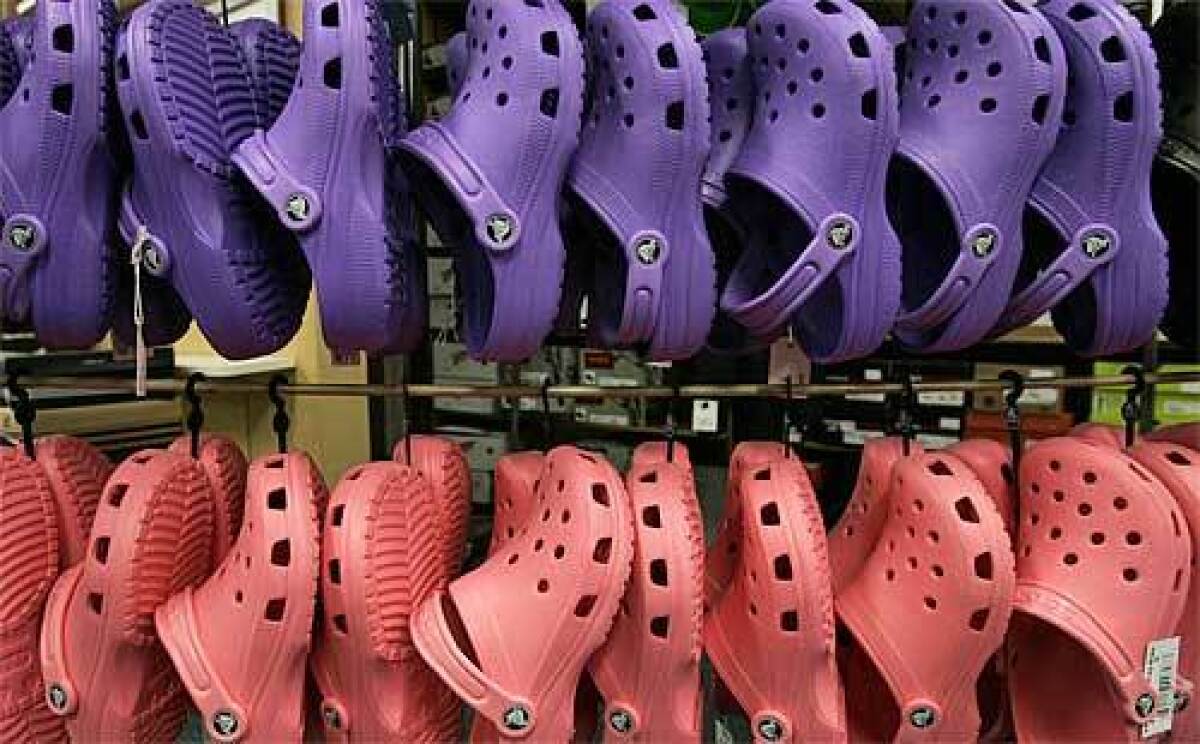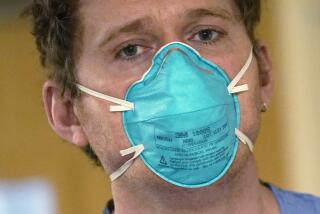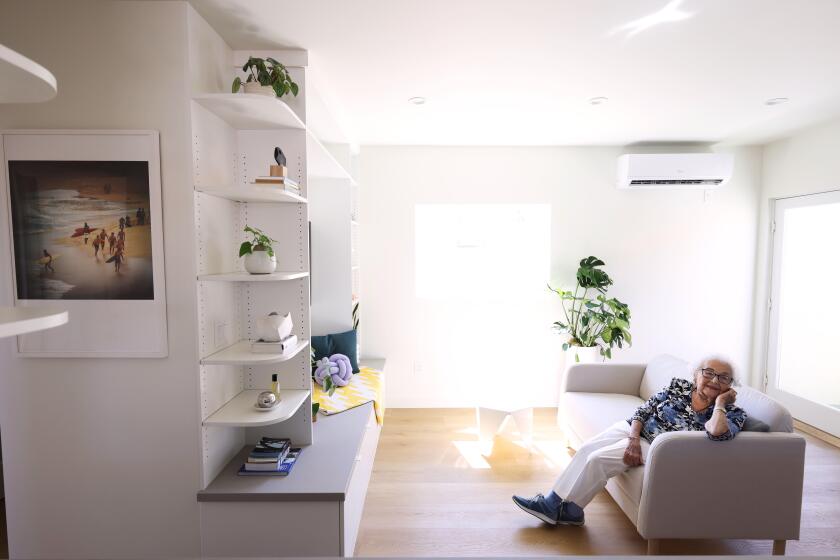Are you a healthcare worker? Crocs will give you a free pair of shoes

The Colorado-based maker of Crocs announced Wednesday that it was prepared to donate — and ship free — up to 10,000 pairs a day of its colorful, molded-resin clogs to members of the medical community workers across the country.
The “Free Pair for Healthcare” program will work like this: Every day, at approximately 9 a.m. Pacific, the Crocs’ website will begin taking orders for one pair of shoes per healthcare worker from select classic clog or Crocs At Work styles up to a daily limit of 10,000 pairs. (Shoes in these two categories usually retail from $34.99 to $59.99.)
Once that number of orders has been reached, a notification advises visitors to return the next day and try again. (On Thursday — Day 2 of the program — a check of the website shortly after noon Pacific found the daily limit had already been reached.)
“Like everyone, we’ve been closely monitoring the news and working hard to map out a way to most effectively help where we can,” Crocs President and Chief Executive Andrew Rees said Wednesday in announcing the initiative. “Over the past week, we have spoken to healthcare workers, their facilities and even their family and friends, and they have specifically asked for our shoes in an effort to provide ease on their feet as well as ease of mind as they need the ability to easily clean up before they go home to their families.”
Infomercial nostalgia, YouTube haircut tutorials and the piercing pain of at-home nose-waxing are at your fingertips.
Rees went on to say that the duration of the giveaway was subject to the level of inventory and number of requests received.
The shoes have long been a popular part of many a healthcare worker’s wardrobe thanks to their comfort, their ability to be slipped on and off easily and that most of the styles (especially the ones in the nursing and hospital shoe category) can be easily cleaned with soap and water. That might also be of interest to the wider shoe-buying community given recent reports in the Huffington Post and other media that a coronavirus might live on shoes for as long as five days. (The Centers for Disease Control and Prevention has tips about how to protect yourself from COVID-19 here.)
Beyond the 10,000-pair-per-day Crocs has pledged to individual applicants, the company has also announced plans to donate up to 100,000 pairs of shoes to be distributed to a number of select healthcare facilities and organizations across the country, including JobsOhio and the Dayton Area Hospital Assn. (which will disperse them through Ohio’s healthcare system); St. Anthony North Health Campus near Denver, and New Jersey-based Atlantic Health System, which will distribute the shoes within its network.
L.A. brands Citizens of Humanity, Hedley & Bennett and Michael Costello, along with New York designers Brandon Maxwell and Christian Siriano, Italian label Prada and French conglomerate Kering, are making face masks and medical gowns.
Crocs is the latest company in the apparel and accessories space to help make up the shortfall of personal protective equipment for members of the medical community on the front lines of fighting the coronavirus pandemic. Other include Italian luxury label Prada, which is using its factories to make overalls and face masks for Italian medical personnel, and designer Christian Siriano, who has offered his help to New York Gov. Andrew Cuomo to make much-needed face masks for that state’s healthcare workers.
Closer to home, local labels Hedley & Bennett and Citizens of Humanity are among the brands turning their attention to creating face masks for members of the medical community.
More to Read
Sign up for The Wild
We’ll help you find the best places to hike, bike and run, as well as the perfect silent spots for meditation and yoga.
You may occasionally receive promotional content from the Los Angeles Times.












